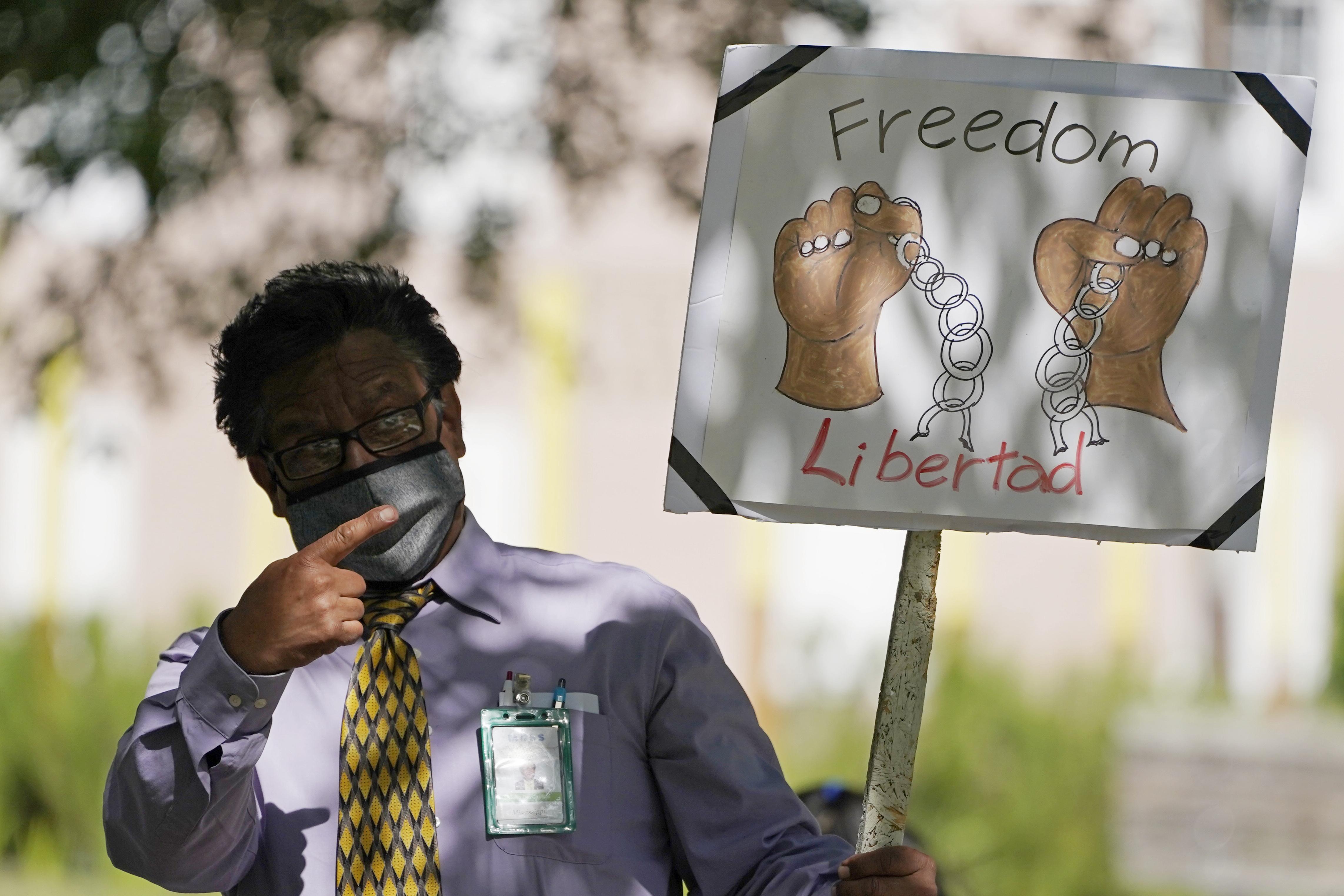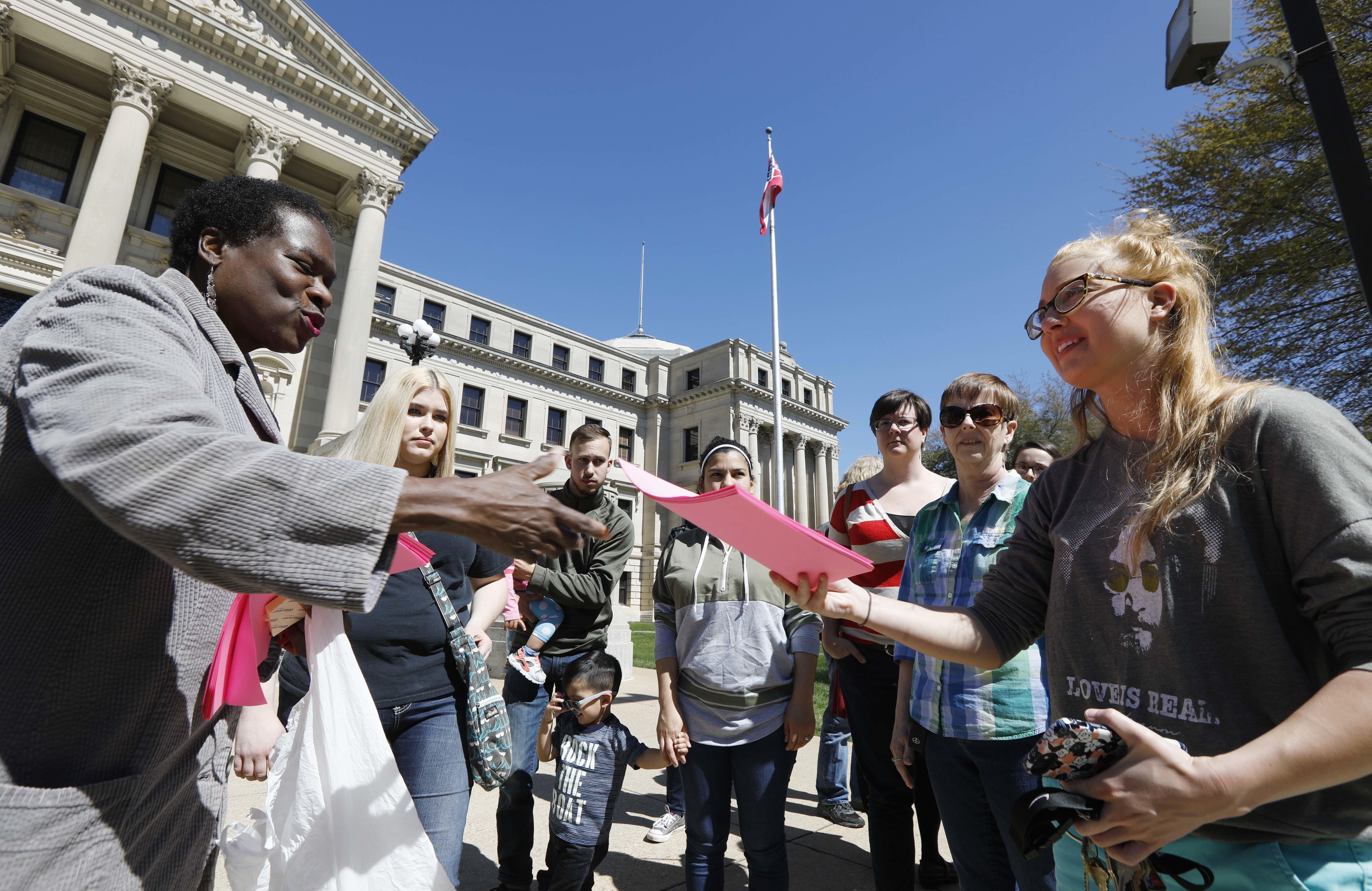That fear has even begun to inform the work of those like L. Patricia Ice, and other attorneys, who have worked in immigration advocacy and legal services for decades.
Because a majority of her clients reside in central or southern Mississippi, Ice has worked most often through the New Orleans office of the United States Citizenship and Immigration Services, or USCIS, which handles applications for both temporary and permanent immigration benefits and programs.
Of the growing number of deportations and detentions that have raised questions of due process and other legal guarantees, the most recent involving that office was the deportation of a two year old girl, her 11 year old sister and their mother to Honduras in late April. Only days before, the girls’ father filed a federal complaint asserting that the youngest daughter was actually a United States citizen, born in Baton Rouge, and thus ineligible for deportation.
All three were detained while attending a routine check-in at the New Orleans ICE field office, located in a towering building at 1250 Poydras Street, only floors below the USCIS office in the same building.
Instances such as these, labeled by advocates as ‘ruse’ tactics, have substantially increased in metropolitan areas across the country since Trump began his second term.
L. Patricia Ice says that while attending a hearing at the same building in March, both she and her client, a Salvadoran man living under Temporary Protected Status, worried he may be detained by ICE on his way out of the hearing.
The swift deportation of the two year old and her relatives, as well as hundreds across the country, has only solidified that fear for Ice, and even came as a surprise for an immigrants rights attorney with decades of practice across multiple states and presidential administrations.
“I was very shocked because I just didn't think that those officers would do that, but now I know they will. It’s shocking and very hurtful, so much so that I feel like I have to give it up -- give up the work. If I were younger, I think I could stand it better.” she told MPB News.
“There's so much uncertainty, which is another reason why I feel a lot like I want to stop doing this. But then on the other hand, I feel like it's hard for me to stop doing it because I do have the knowledge of the systems. There are other immigration lawyers here in Mississippi, but most of them have not practiced as long as I have, so they haven't seen the different trends.”
“They're younger and they're very good, but I've been doing it for a long time, and I really feel like I know what I'm doing. And so to give up the work when I feel like I'm one of the few who understands the work is hard.”
Particularly alarming to Ice has been the revoking of TPS and other protections for some of the hemisphere’s largest, and most vulnerable, migrant populations – particularly those who have arrived or are arriving from Cuba, Haiti, Nicaragua and Venezuela.
Others who fall outside of the TPS program, and particularly those who arrived undocumented and were granted parole under urgent humanitarian considerations, have virtually disappeared into a dark and uncertain future since Trump took office on Jan. 20.
“Some of the ones that I helped with [parole] started calling me last year; it was before we even knew who was running [for president]. They were calling me to ask how to renew their parole -- well, they never came out with a rule to renew their parole. And I kept telling them, ‘right now, we can't renew it.’ Now, it's definite that they can't renew it, and so that's a bit upsetting. I don't get those calls anymore – they were mainly from Nicaraguans.”
'It's been very hard'
Like many who arrive in the United States from Latin America, Nina’s family spent the first several years of her life following the sun and the seasons across the country in search of itinerant farm work, typically for low wages and flimsy, if any, legal protections.
When they arrived in Central Mississippi, several generations shared the same home without a car or many resources between them. Along with her siblings and cousins, the children of the family spent their first weeks of school in Pelahatchie with dirty shoes and holes in their clothes, barely speaking English, and seemingly out of sight of school administrators who they looked to for help.
As the youngest, Nina soon became the family’s de facto interpreter, whether at school or in countless immigration check-ins.
It was at some point in high school, when she planned to join her peers in getting a driver's license, that she discovered she was undocumented and forbidden by state law to have a license at all.
From that point, the fear of being pulled over and the myriad scenarios that presented was pervasive, as it is for many in central Mississippi, where construction companies and other employers now contract with drivers to transport their workers from point to point.
Undeterred, Nina still graduated high school, soon after earning her paralegal degree to better help the countless families in situations that remind her of her own.
“But right now, organizing the community isn't very organized; it’s been very hard. A lot of people just like to call you individually instead of a whole group meetup at a town hall, which I completely understand, because you never know who might come and try to scare people,” she told MPB News.
“Everyone's very cautious about how they're moving. But one thing I've been trying to really, really get out is know your rights. A lot of people do not know their rights once they're arrested or in custody of ICE. They don't know that you can say, 'no, I don't want to speak until I have a lawyer.' That's my biggest concern right now.”
But as decades of U.S. immigration policy – and particularly that of enforcement – have unraveled under Trump’s second term, those like Nina have found an already precarious concept of a future even more uncertain, particularly as programs like TPS and Deferred Action for Childhood Arrivals, or DACA, have faced substantial challenges from the executive branch.
Many have used the abrupt changes under this administration as an impetus to ‘self-deport’ and avoid the taxing and often dehumanizing process of formal deportation entirely.
But Nina, now in her 20’s, says despite her own fear, or rather in spite of it, that she intends to continue organizing in these communities as she has for years.
“It's scary not knowing your future, not being able to say 'yeah, I'm going to buy this home because I've been here so long,' when you never know. That it can just be gone and it's just very uncertain and it doesn't help me prepare for the future, which I would like to,” she said.
“It's a very scary time for me, but I also want to show the community that there's still hope, and if you speak up, something could happen. I want to give them hope that we can still stand up and we can be here, even though I myself am scared too.”





